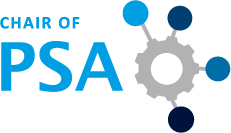M.Sc. Niharika Ramanath

M.Sc. Niharika Ramanath
Production Systems and Automation (IEPS)
Niharika Ramanath attended St. Joseph's University in India, where she studied for a BSc (Physics, Mathematics, and Computer Science), graduating in 2018. She worked for 4.5 years as an information systems consultant at Lumen Technologies. She studied digital engineering at Otto von Guericke University and graduated in 2025. She has been working as a student assistant since August 2024 and as a research assistant since July 2025 in IAF.
Completed projects
Digital plant modeling with neutral data formats (DIAMOND) Subproject: Consistent, process-oriented data models in the engineering of production systems (KPDM)
Duration: 01.11.2022 to 31.10.2025
When new products are introduced, existing production systems have to be expanded or modified. New manufacturing processes are derived from new products, which are implemented either manually or using plant technology. This system technology (resources) is therefore directly linked to changes to the product and process. The plant life cycle contains a large number of individual data-processing processes in various engineering disciplines, many of which are design processes. Each of these disciplines already works with digital models. The individual steps build on each other and each discipline consumes information from the previous process. Currently, this information is usually transferred manually, which takes a lot of time and leads to an increased number of errors. This also applies to the entire ecosystem, in which component manufacturers, for example, extract the relevant information from their own engineering and make it available to the entire value chain. However, the current speed of transformation in the automotive industry no longer allows for long project runtimes and negative quality influences. It is therefore necessary to make changes available to all those involved in the process in a timely manner and to enable a common "picture" via an efficient exchange of information. The main objective of the OvGU within the DIAMOND-KPDM project is the development and application demonstration of a procedure for the application-specific creation and use of a system of coordinated domain-specific and cross-domain data models, the so-called Common Data Model, which enables an efficient and effective design of production systems through an efficient and effective transformation, integration and selection of design data.
This text was translated with DeepL
2025
Peer-reviewed journal article
Bridging manual & automated workflows - CAD drawing data extraction in I5.0
Ramanath, Niharika; Bhaskar, Roshan Rayala; Girish, Shashankh Mysore; Lüder, Arndt; Hoffmann, David
In: IFAC-PapersOnLine / Internationale Förderung für Automatische Lenkung - Frankfurt : Elsevier, Bd. 59 (2025), Heft 10, S. 398-403
